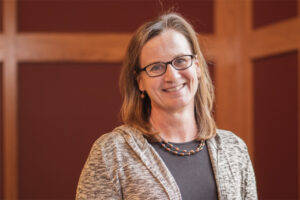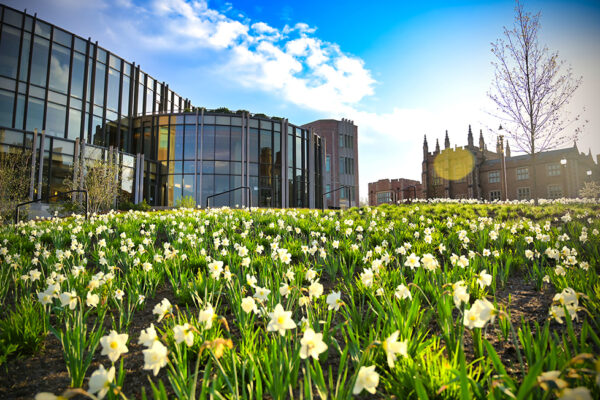 Beth Martin is teaching professor, Washington University in St. Louis Environmental Studies Program in Arts & Sciences; Interim director, Washington University Climate Change Program; and research and independent non-governmental organizations co-focal point, United Nations Framework Convention on Climate Change.
Beth Martin is teaching professor, Washington University in St. Louis Environmental Studies Program in Arts & Sciences; Interim director, Washington University Climate Change Program; and research and independent non-governmental organizations co-focal point, United Nations Framework Convention on Climate Change.
Writing in my bedroom office under a stay-at-home order, the coronavirus is reminding me and the world of our interconnectedness and our humanity. We as individuals and as communities—local, national and global—are asking ourselves: How are we adjusting to a new normal? How are we understanding each other and our needs, both individually and collectively? What are our individual responsibilities and ethical obligations, and what are our collective ones? These are questions those who work in the climate change arena continually ask, and they are questions that the humanities are critical in helping us answer.
So why are the humanities integral to the Climate Change Program at Washington University in St. Louis? As we do in times of challenge, I leaned on experts for help answering this question. I posed it to colleagues in fields ranging from history to philosophy, and from music to writing. Their perspectives were thoughtful, insightful, and beautiful, and several themes emerged.
Martin’s piece includes commentary from a number of WashU scholars: Chris Stark, assistant professor of composition; Miranda Rectenwald, University Libraries curator of local history; Suzanne Loui, lecturer in environmental humanities in the Environmental Studies Program; Kate Bloomquist, lecturer in The College Writing Program; Peter Kastor, professor of history and of American culture studies; Jen Arch, senior lecturer in English; and Kit Wellman, professor of philosophy.
Martin’s full piece is included in the Spring/Summer issue of Missouri Humanities Magazine, pages 26-27. Download complete issue here.


